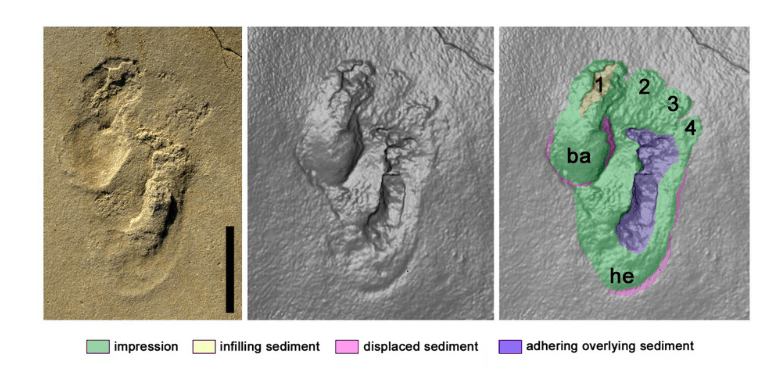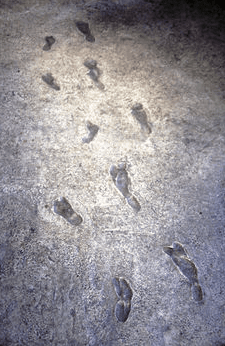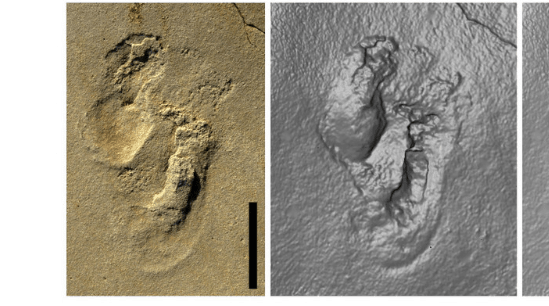Ancient footprints found in Crete challenge theory of human evolution
 Experts have long believed humans evolved in Africa millions of years ago but the discovery of ancient human-like footprints, on the island of Crete could challenge the theory of how and where human beings emerged from.
Experts have long believed humans evolved in Africa millions of years ago but the discovery of ancient human-like footprints, on the island of Crete could challenge the theory of how and where human beings emerged from.
Researchers have discovered many footprints at Trachilos, Chania that are nearly 6 million years-old. It looks like they may be from a hominin – a member of the human species after separation from the chimpanzee lineage. But, as the authors point out themselves, the findings are highly controversial – suggesting human ancestors may have existed in Crete at the same time as they evolved in Africa.

If the footprints are confirmed to be from a hominin, it could prove that the earliest human ancestors may have wandered around Greece at the same time that they were developing in east Africa.
“Some would argue that one of the defining characteristics of being part of the human clade is the shape of our foot,” said Matthew Bennett, professor of environmental and geographical sciences at Bournemouth University, who co-authored the study published in Proceedings of the Geologists’ Association. “So imagine our surprise when we discovered fossil footprints with human-like characteristics at Trachilos.”
The find comes after scientists from Greece and Bulgaria identified a human-like jawbone dating back more than 7 million years. Their claim that it is the oldest fossil of a human-like ape, together with the footprints, complicates the timeline of human evolution.
You can read the Trachilos researchers’ own article about their footprint discovery here.
Prinkipo Greek Orthodox Orphanage: Symbol of Greek persecution in Turkey


